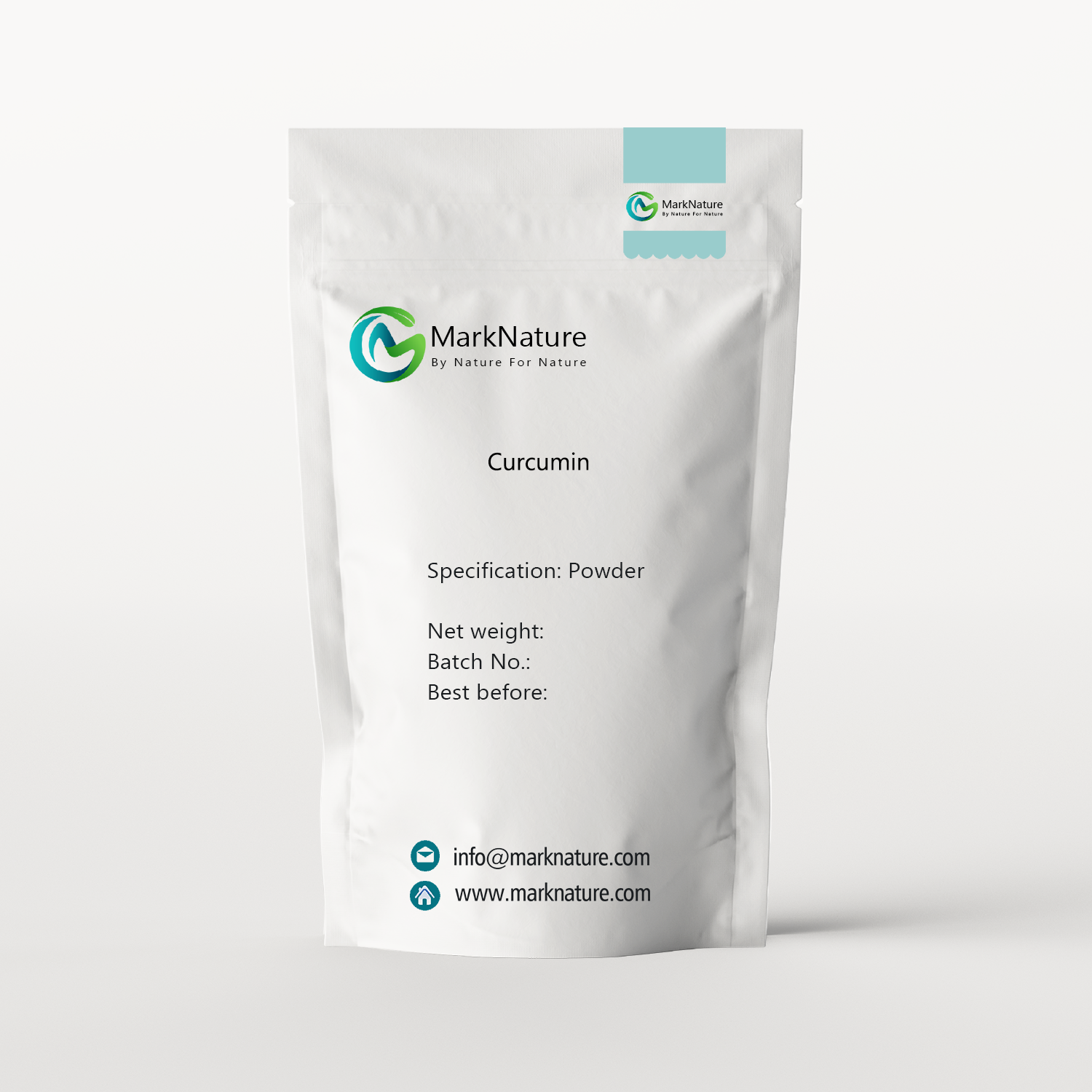Description
Curcumin is a natural polyphenolic compound derived from the rhizome of the turmeric plant (Curcuma longa). It has gained significant attention due to its numerous beneficial properties, such as strong antioxidant, anti-inflammatory, and antimicrobial capabilities. Moreover, it is relatively safe, with few side effects, which makes it a promising ingredient across multiple sectors.
Molecular Formula: C21H20O6
Molecular Weight: 368.4 g/mol
CAS No: 458-37-7
EC No: 207-280-5
Appearance: Yellow powder
Purity (HPLC): 95.54%
Lead (Pb): ≤2.0mg/kg
Arsenic (As): ≤2.0mg/kg
Cadmium (Cd): ≤1.0mg/kg
Mercury (Hg): ≤0.1mg/kg
Application:
1.Food Industry: Commonly added to food products as a natural colorant, imparting a vibrant yellow hue to curries, mustard, and even some baked goods. It also functions as a preservative, thanks to its antimicrobial properties, extending the shelf life of certain perishable foods. Additionally, it is being explored for its potential to fortify functional foods, as its antioxidant and anti-inflammatory qualities can contribute to overall health benefits when consumed regularly.
2.Pharmaceutical Field: In drug development, curcumin is studied for treating various chronic diseases. It shows promise in alleviating symptoms of arthritis due to its anti-inflammatory effects. There are also ongoing clinical trials exploring its role in cancer prevention and treatment, as it may interfere with cancer cell growth, proliferation, and angiogenesis.
3.Cosmetics Industry: Incorporated into skincare products like creams, lotions, and serums. Its antioxidant property helps combat free radicals, reducing skin aging signs such as wrinkles and fine lines. It can also soothe irritated skin because of its anti-inflammatory nature, making it suitable for sensitive skin formulations.
4.Nutraceutical Industry: Sold as dietary supplements in the form of capsules or tablets. Consumers take curcumin supplements to boost their immune system, improve digestion, and reduce systemic inflammation, capitalizing on its natural health-promoting properties without the need for pharmaceutical intervention.
5.Veterinary Medicine: Being investigated for use in animal health. It may be used to treat inflammatory conditions in pets, such as joint pain in older dogs, and also has potential in promoting better gut health in livestock, enhancing their growth and productivity.

